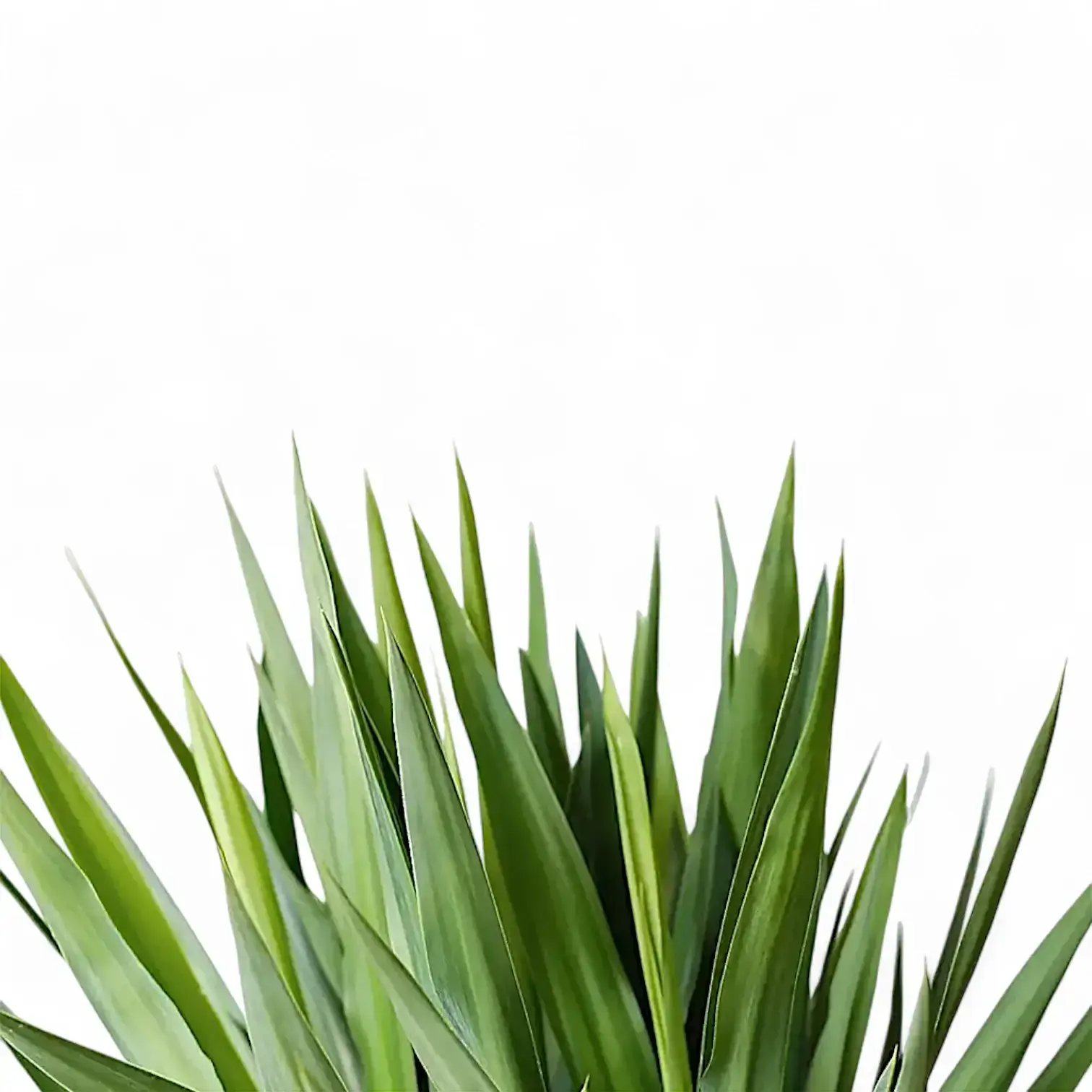Yucca gigantea – Spineless Strength with Sculptural Style
Yucca gigantea, commonly known as the Spineless Yucca or Giant Yucca, is a slow-growing architectural houseplant native to southern Mexico and Central America. Its sturdy trunk and smooth, sword-shaped foliage make it both dramatic and safe — a statement plant without sharp edges. Indoors, Yucca gigantea stays around 2–2.5 m tall and thrives with minimal effort, adding a clean, structured look to bright rooms, studios, and sunlit corners. Outdoors, it can mature into a true giant, reaching heights over 9 m.
● Why Yucca gigantea Is a Standout Choice
- Spineless and Safe: Smooth-edged leaves make this one of the most home-friendly yuccas.
- Drought-Hardy: Stores moisture in its trunk and roots, reducing watering needs dramatically.
- Effortless Maintenance: No misting, no special humidity — just bright light and occasional water.
- Slow Growth: Compact development in containers makes it perfect for long-term interior use.
- Architectural Presence: Its bold, upright form adds sculptural structure to any space.
● Natural Habitat of Yucca gigantea
In the wild, Yucca gigantea grows across semi-arid regions of southern Mexico, Belize, Guatemala, and Honduras. It thrives on rocky slopes and coastal plains, where intense sunlight and poor soils shaped its drought-tolerant, water-storing trunk — a natural adaptation that makes it remarkably resilient indoors.
● Simple, Reliable Care for Yucca gigantea
- Light: Prefers bright, direct sun for several hours a day. Can adapt to medium light but may grow more slowly.
- Watering: Water deeply only when at least 75 % of the substrate has dried. Persistent overwatering is the most common mistake.
- Soil Mix: Requires excellent drainage. Use a coarse mix enriched with perlite, sand, or mineral grit.
- Fertilizer: Feed monthly with a balanced houseplant fertilizer during spring and summer only.
- Temperature: Ideal range is 18–28 °C. Protect from cold drafts and frost.
- Humidity: Low humidity is not an issue. Slight browning at leaf tips in very dry air is purely cosmetic.
- Potting: Choose a stable, heavy container with drainage holes. Repot every 2–3 years or when the dense root mass restricts growth.
- Pruning: Cut back tall stems to maintain height; new shoots will form just below the cut.
- Propagation: Take stem cuttings, allow ends to callous, then root in dry substrate or water with good airflow.
● Troubleshooting Yucca gigantea Problems
- Yellowing Leaves: Usually caused by overwatering — allow soil to dry fully between waterings.
- Lower Leaves Shedding: Normal aging process. Remove dry leaves to reveal the textured trunk.
- Pale or Drooping Foliage: Often due to insufficient light or temperature fluctuations. Move to a brighter, more stable spot.
- Rootbound Growth: If top-heavy or slow-growing, inspect the roots; repot into a wider pot if densely packed.
- Pests: Occasionally attracts spider mites, mealybugs, or scale. Treat early with insecticidal soap or use beneficial insects.
● Frequently Asked Questions
- How often should I water Yucca gigantea? Every few weeks, depending on temperature and light. Always let most of the soil dry first.
- Can it live in low light? It survives in moderate light but thrives in bright, sunny positions. Expect slower growth in dim areas.
- Will it flower indoors? Rarely — but older, well-lit plants may produce tall stalks with creamy white, bell-shaped flowers.
- Can I keep it outdoors? Yes, if temperatures remain above –2 °C. In colder regions, move outside in summer and bring indoors before frost.
- Is Yucca gigantea toxic to pets? Yes — it contains saponins that are toxic if ingested. Keep away from pets and small children.
● Add Yucca gigantea to Your Space
Yucca gigantea is one of the easiest architectural plants to maintain indoors — tough, sculptural, and spineless. Order now to bring long-lasting vertical beauty into your home without the hassle.
Yucca gigantea
Yucca gigantea comes in following sizes:
S – is approximately 35 cm tall and comes in a ⌀ 12 cm pot
L – is approximately 80 cm tall and comes in a ⌀ 17 cm pot
XL – is approximately 100 cm tall and comes in a ⌀ 21 cm pot































